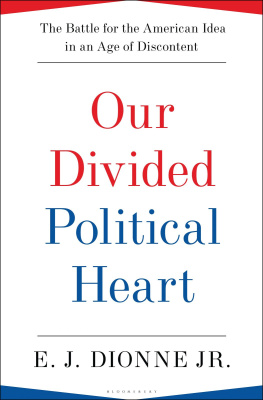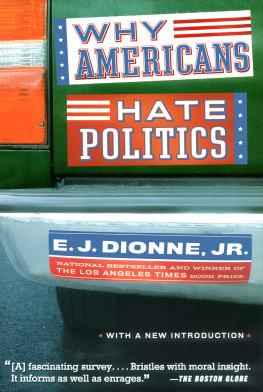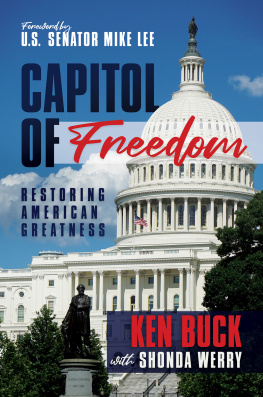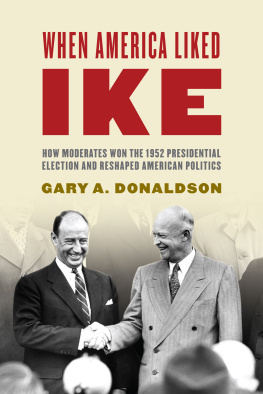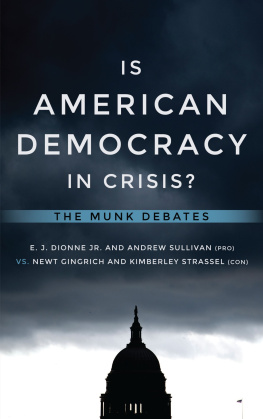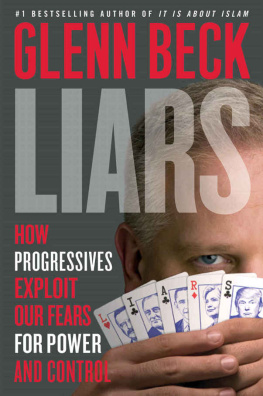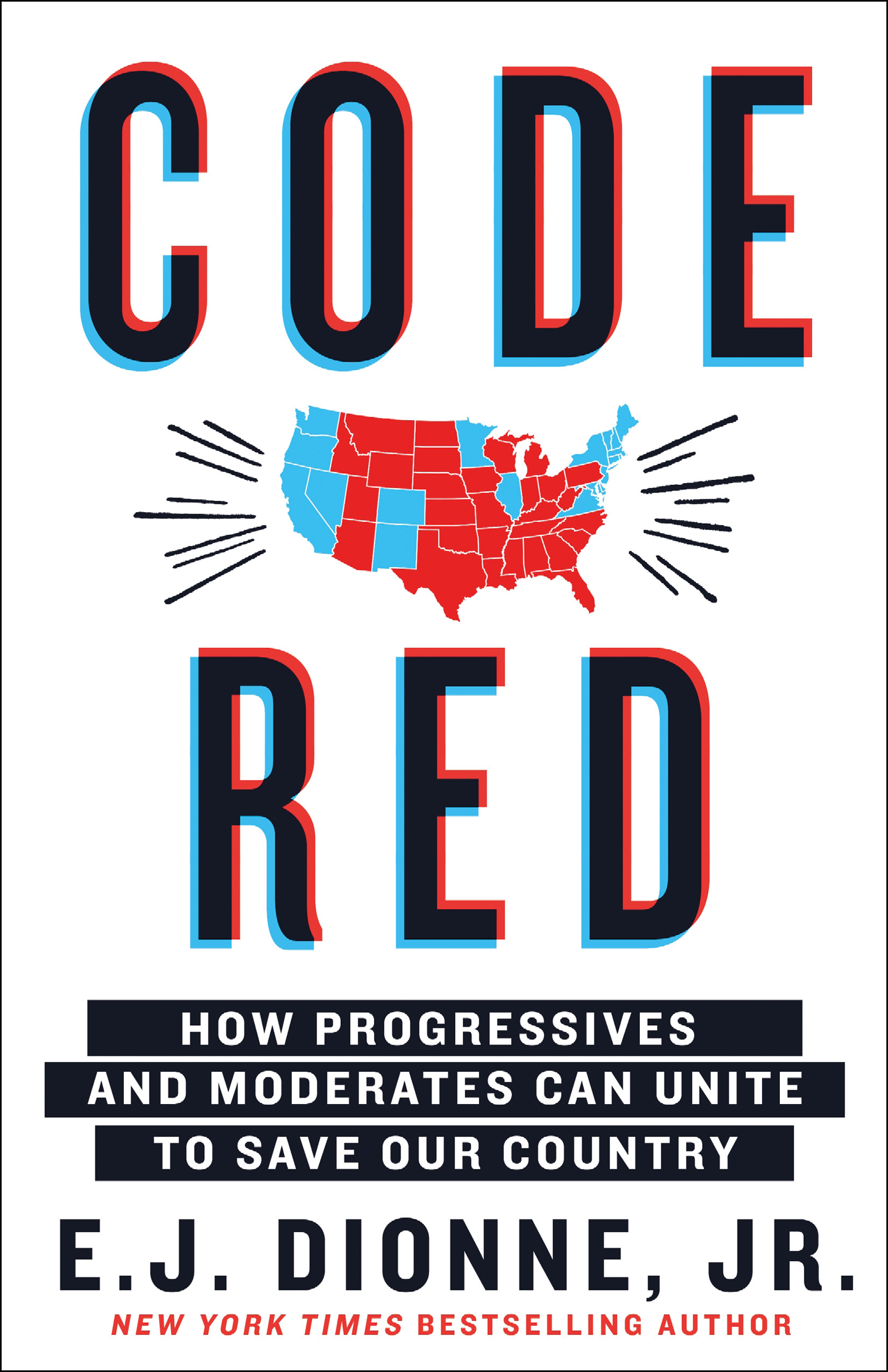E.J. Dionne - Code Red: How Progressives and Moderates Can Unite to Save Our Country
Here you can read online E.J. Dionne - Code Red: How Progressives and Moderates Can Unite to Save Our Country full text of the book (entire story) in english for free. Download pdf and epub, get meaning, cover and reviews about this ebook. year: 2020, publisher: St. Martins Publishing Group, genre: Politics. Description of the work, (preface) as well as reviews are available. Best literature library LitArk.com created for fans of good reading and offers a wide selection of genres:
Romance novel
Science fiction
Adventure
Detective
Science
History
Home and family
Prose
Art
Politics
Computer
Non-fiction
Religion
Business
Children
Humor
Choose a favorite category and find really read worthwhile books. Enjoy immersion in the world of imagination, feel the emotions of the characters or learn something new for yourself, make an fascinating discovery.

Code Red: How Progressives and Moderates Can Unite to Save Our Country: summary, description and annotation
We offer to read an annotation, description, summary or preface (depends on what the author of the book "Code Red: How Progressives and Moderates Can Unite to Save Our Country" wrote himself). If you haven't found the necessary information about the book — write in the comments, we will try to find it.
An exquisitely timed book ...Code Redis a worthwhile exploration of the shared goals (and shared enemies) that unite moderates and progressives. But more than that, it is a sharp reminder that the common ground on which Dionne built his career has been badly eroded, with little prospect that it will soon be restored.The New York Times Book Review
New York Timesbestselling author and Washington Post columnist E. J. Dionne, Jr. sounds the alarm in Code Red, calling for an alliance between progressives and moderates to seize the moment and restore hope to Americas future for the 2020 presidential election.
Will progressives and moderates feud while America burns? Or will these natural allies take advantage of the greatest opportunity since the New Deal Era to strengthen American democracy, foster social justice, and turn back the threats of the Trump Era?
The United States stands at a crossroads. Broad and principled opposition to Donald Trumps presidency has drawn millions of previously disengaged citizens to the public square and to the ballot boxes. This inspired and growing activism for social and political change hasnt been seen since the days of Franklin Roosevelts New Deal policies and the Progressive and Civil Rights movements. But if progressives and moderates are unableand unwillingto overcome their differences, they could not only enable Trump to prevail again but also squander an occasion for launching a new era of reform.
In Code Red, award-winning journalist E. J. Dionne, Jr., calls for a shared commitment to decency and a politics focused on freedom, fairness, and the future, encouraging progressives and moderates to explore common ground and expand the unity that brought about Democrat victories in the 2018 elections. He offers a unifying model for furthering progress with a Politics of Remedy, Dignity, and More: one that solves problems, resolve disputes, and moves forward; that sits at the heart of the demands for justice by both long-marginalized and recently-displaced groups; and that posits a positive future for Americans with more covered by health insurance, more with decent wages, more with good schools, more security from gun violence, more action to roll back climate change.
Breaking through the partisan noise and cutting against conventional wisdom to provide a realistic look at political possibilities, Dionne offers a strategy for progressives and moderates to think more clearly and accept the responsibilities that history now imposes on them. Because at this point in our national story, change cant wait.
E.J. Dionne: author's other books
Who wrote Code Red: How Progressives and Moderates Can Unite to Save Our Country? Find out the surname, the name of the author of the book and a list of all author's works by series.

